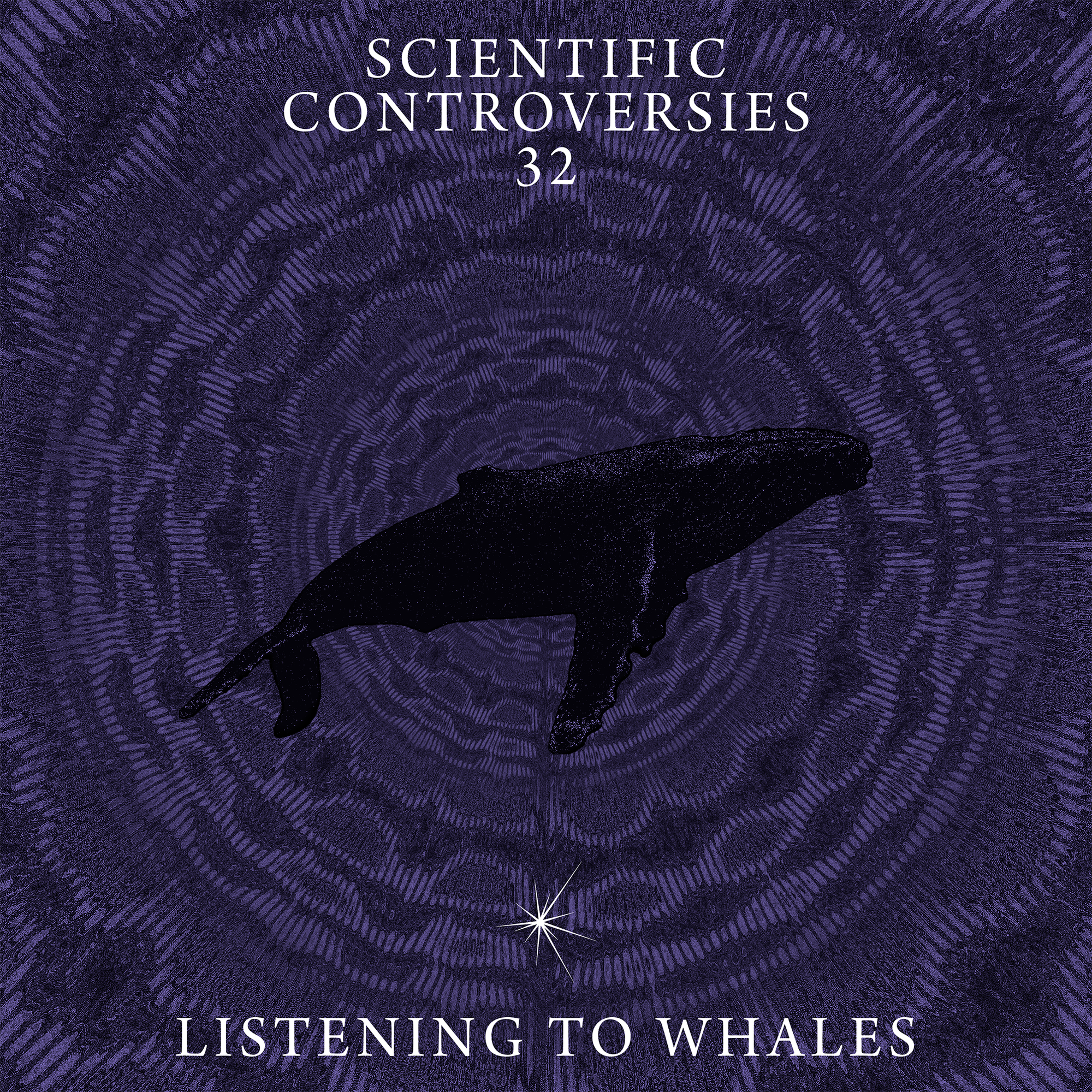
Scientific Controversies: Listening to Whales
When the haunting songs of whales were first captured by accident in the 1950s, they were a revelation. These ocean giants weren’t just vocalizing, they were singing. They were communicating. Ever since, scientists have wondered, could we ever speak to another species? Thousands of codas—the clicking patterns sperm whales use to connect across the oceanic expanse—form the basis of a phonetic alphabet. As large language models improve, our ability to decipher these elements and interpret the meaning of whale language may be imminent. This thrilling new development augurs complex implications for ocean conservation and species protection. Instead of talking to the whales, marine biologists caution that first we’ll need to listen.
Join us for an evening of whalesong and codas. We’ll explore the scientific, philosophical, and technical challenges of communicating with cataceans and consider what whale language might reveal about intelligence, consciousness, and social bonds among other animals.
David Gruber will share insights from Project CETI, an ambitious effort to decode whale communication using advanced AI and robotics. Joy Reidenberg will delve into the remarkable anatomy of whales, their ability to produce and perceive sound, and how their bodies have adapted for life in the ocean’s depths. Scientific Controversies is hosted by PW Founding Director of Sciences, astrophysicist Janna Levin.
As part of the evening, OceanX will present their immersive Portal—a dome installation showcasing their deep-sea research and ocean exploration technology. Attendees will have the opportunity to virtually explore life beneath the surface and gain insight into the tools and science behind modern marine discovery.
DJ Black Helmet will bring the grooves and oceanic soundscapes throughout the evening. Stargazing in the garden with the Amateur Astronomers Association will open and conclude the night, weather permitting. For All Things Good will be serving up fresh Mexican food all evening.
David Gruber is the Founder & President of Project CETI (Cetacean Translation Initiative), a nonprofit organization and interdisciplinary scientific and conservation initiative that is applying advanced machine learning and robotics to translate the communication of sperm whales. He is a Distinguished Professor of Biology and Environmental Sciences at the City University of New York and National Geographic Explorer. His research bridges animal communication, climate science, marine biology, microbiology, and molecular biology, and his inventions include technologies to perceive the underwater world from the perspective of marine animals. His long-standing collaboration with the Harvard Microrobotics Laboratory has led to the engineering of some of the most gentle robots ever created to better understand and interact with life in the ocean. Gruber actively collaborates with artists, such as Joan Jonas, and he co-curated the exhibition “Who Speaks for the Oceans?” at the Mishkin Gallery and the Tarble Arts Center. Gruber holds the Lagrange Prize in complex systems science for his advancements “focused on the conservation of biodiversity, protection of resources and the safeguarding of ecosystems.”
Dr. Joy S. Reidenberg is a comparative anatomist specializing in the vocal and respiratory systems of mammals, particularly whales and other cetaceans. She is a professor at the Icahn School of Medicine at Mount Sinai, where she teaches anatomy, histology, embryology, and imaging. She earned her BA from Cornell and her MPhil and PhD in Anatomy from Mount Sinai. Her research explores how animals adapt to environmental extremes, focusing on sound production and diving physiology in marine mammals, with applications to human health. Widely recognized for her science communication work, Reidenberg gained prominence as the anatomist on the award-winning documentary series Inside Nature’s Giants, dissecting large animals to illuminate anatomy and evolution. Her TV appearances also include Sex in the Wild, Big Blue Live, and Mythical Beasts. She has received numerous honors, including the Henry Gray Distinguished Educator Award and the Jacobi Medallion, for her contributions to education and public engagement.
Janna Levin is the founding director of sciences at Pioneer Works and the co-editor-in-chief of Broadcast. She is a professor of physics and astronomy at Barnard College of Columbia University. A Guggenheim fellow, she has contributed to an understanding of black holes and cosmology and frequently contributes to documentaries and the news. She has authored books on black holes and the universe as well as a PEN award–winning novel. Her most recent book is Black Hole Survival Guide.